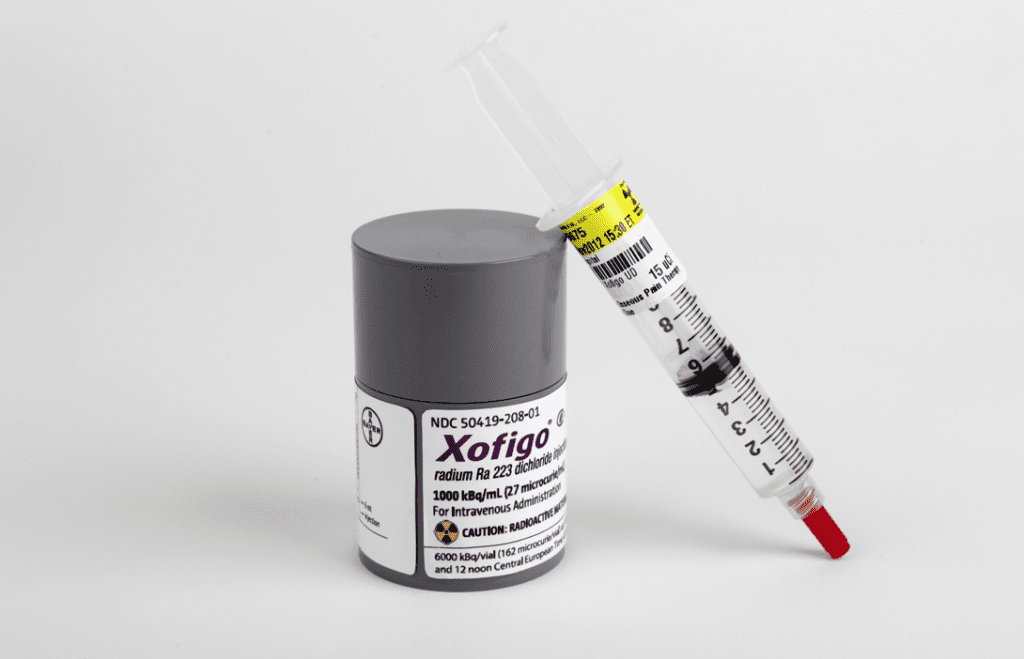
NICE says ‘no’ to Xofigo
pharmafile | March 24, 2014 | News story | Sales and Marketing | Bayer, CDF, NHS, NICE, abiraterone, prostate, xofigo
NICE has dealt Bayer a severe blow by not approving prostate cancer drug Xofigo for use on the NHS in new draft guidance.
Last month Xofigo (radium-223 dichloride) was added to England’s Cancer Drugs Fund, which means it can in theory be accessed by patients who need it.
The injection was shown the green light in Europe in November for castration-resistant prostate cancer which has spread to bone tissue, and is already licensed in the US for the same indication.
NICE was looking specifically at how well Xofigo treats bone metastases, when the primary cancer has spread from the prostate – and has decided that Xofigo, on current evidence, does not measure up to best supportive care.
Bone metastases are very serious, causing pain and limiting mobility and leaving many patients requiring full-time care for daily activities.
“Clinical specialists told the committee that radium-223 would be used as an alternative treatment option to docetaxel as an initial treatment, and abiraterone as a second-line treatment when the disease has progressed,” explains NICE chief executive Sir Andrew Dillon.
“However, Bayer did not provide the committee with any data on how well radium-223 works compared to docetaxel or abiraterone, only comparing it to a placebo,” he adds. “We know how important this could be to patients and we are disappointed not to able to recommend this drug, but we have to be confident that its benefits justify its considerable cost.”
Bayer estimates the average cost of a course of treatment is £24,240 and has agreed a patient access scheme with the Department of Health.
The manufacturer’s base case ICER for Xofigo versus current standard treatment is £55,500 per QALY, although NICE says it will be more like £57,400 and suggests this figure would be likely to rise.
Prostate cancer has been a vexed therapy area for NICE and pharma: in January the watchdog announced it was to consult again on its decision to recommend Astellas’ Xtandi.
In October, NICE’s draft guidance said Xtandi (enzalutamide) should be used to treat hormone relapsed metastatic prostate cancer – a disease for which relatively few options exist at present.
In that guidance, the brand was only recommended for people whose disease has progressed during or after one docetaxel-containing chemotherapy regimen.
However, NICE then said that limit should be removed, throwing it open to patients who have had ‘any number’ of such treatments.
But Astellas was ‘disappointed and surprised’ that NICE introduced a restriction which was not in the earlier guidance: that Xtandi should only be open to patients who have not received abiraterone.
Adam Hill
Related Content

Digital mental health technologies – a valuable tool in supporting people with depression and anxiety
The potential benefits of digital mental health technology for managing depression, anxiety and stress, together …

Evotec and Bayer announce new kidney disease study
Evotec and Bayer have announced the initiation of a phase 2 clinical study in kidney …

A community-first future: which pathways will get us there?
In the final Gateway to Local Adoption article of 2025, Visions4Health caught up with Julian …






